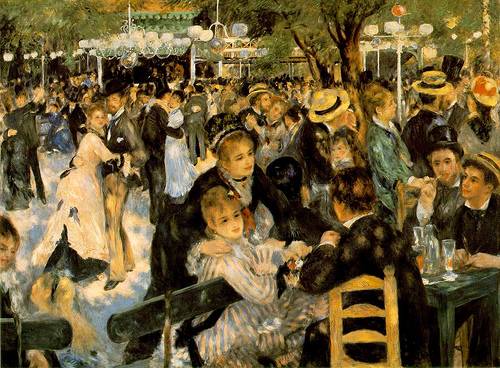
Twenty percent of the world’s fresh water is in a single lake, Russia’s Lake Baikal.
Its surface is smaller than Lake Superior — but it’s a mile deep.

Twenty percent of the world’s fresh water is in a single lake, Russia’s Lake Baikal.
Its surface is smaller than Lake Superior — but it’s a mile deep.
The Professor brightened up again. ‘The Emperor started the thing,’ he said. ‘He wanted to make everybody in Outland twice as rich as he was before — just to make the new Government popular. Only there wasn’t nearly enough money in the Treasury to do it. So I suggested that he might do it by doubling the value of every coin and bank-note in Outland. It’s the simplest thing possible. I wonder nobody ever thought of it before! And you never saw such universal joy. The shops are full from morning to night. Everybody’s buying everything!’
— Lewis Carroll, Sylvie and Bruno
Your vote will make a difference only if it breaks a tie or creates one.
This is very unlikely to be the case.
So why vote?

“He has no talent at all, that boy! You, who are his friend, tell him, please, to give up painting.”
— Manet to Monet, on Renoir
99 + 19 + 29 + 99 + 89 + 59 + 19 + 59 + 39 = 912985153
American businessman Russell Arundel and his friends were drinking rum in a Nova Scotia fishing lodge in 1948 when they got blearily ambitious: They drew up a declaration of independence for tiny Outer Bald Tusket Island, renaming it Outer Baldonia:
Fishermen are endowed with the following inalienable rights: The right to lie and be believed. The right of freedom from questioning, nagging, shaving, interruption, women, taxes, politics, war, monologues, cant and inhibition. The right to applause, vanity, flattery, praise and self-inflation. The right to swear, lie, drink, gamble and be silent. The right to be noisy, boisterous, quiet, pensive, expansive and hilarious.
Baldonia’s currency, they declared, was the tunar; all citizens who caught bluefin tuna would be named princes; and exports would include empty rum and beer bottles. Women were banned — though an exception was eventually made for Arundel’s former secretary, “princess” Florence McGinnis, because “I was doing all the paperwork.”
Baldonia made a modest name for itself: It was recognized in the Washington D.C. telephone directory, and Rand McNally put it on a map. But Arundel tired of the joke and eventually sold the island to the Nova Scotia Bird Society — he’d spent only one night in the “royal palace,” he said, and found it “windy, cold, and miserable.”
In 1620 the Duke of Buckingham dug a hole at the center of Stonehenge.
John Aubrey, who interviewed local residents about it in 1666, reports that “something was found, but what it was Mrs. Mary Trotman … hath forgot.”
In the 1840s P.T. Barnum found himself a victim of his own success. His New York museum of curiosities proved so popular that it was regularly filled to capacity and could admit no more customers.
Barnum studied the problem and hired a carpenter. Soon a new door appeared in the museum with a sign reading THIS WAY TO THE EGRESS.
Those who followed it found themselves on Ann Street.
A friend of mine, a cosey old bachelor, who has been looking into a prayer-book, says that the Matrimonial Service exactly resembles Matrimony itself, since they both begin with ‘Dearly Beloved,’ and both end with ‘Amazement.’
— The Nic-Nac; or, Oracle of Knowledge, May 10, 1823